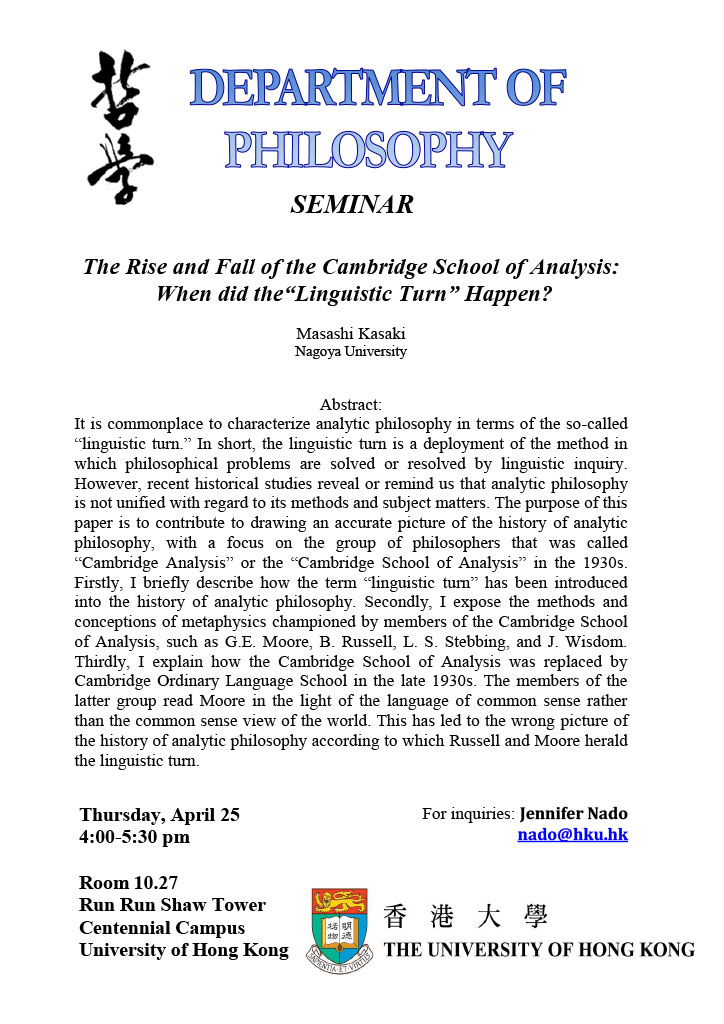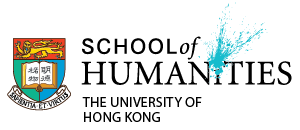
Department of Philosophy
The Rise and Fall of the Cambridge School of Analysis: When did the“Linguistic Turn” Happen?
Masashi Kasaki
Nagoya University
Abstract:
It is commonplace to characterize analytic philosophy in terms of the so-called “linguistic turn.” In short, the linguistic turn is a deployment of the method in which philosophical problems are solved or resolved by linguistic inquiry. However, recent historical studies reveal or remind us that analytic philosophy is not unified with regard to its methods and subject matters. The purpose of this paper is to contribute to drawing an accurate picture of the history of analytic philosophy, with a focus on the group of philosophers that was called “Cambridge Analysis” or the “Cambridge School of Analysis” in the 1930s. Firstly, I briefly describe how the term “linguistic turn” has been introduced into the history of analytic philosophy. Secondly, I expose the methods and conceptions of metaphysics championed by members of the Cambridge School of Analysis, such as G.E. Moore, B. Russell, L. S. Stebbing, and J. Wisdom. Thirdly, I explain how the Cambridge School of Analysis was replaced by Cambridge Ordinary Language School in the late 1930s. The members of the latter group read Moore in the light of the language of common sense rather than the common sense view of the world. This has led to the wrong picture of the history of analytic philosophy according to which Russell and Moore herald the linguistic turn.
Thursday, April 25
4:00-5:30 pm
Room 10.27 Run Run Shaw Tower
Centennial Campus
University of Hong Kong
For inquiries: Jennifer Nado (nado@hku.hk)
